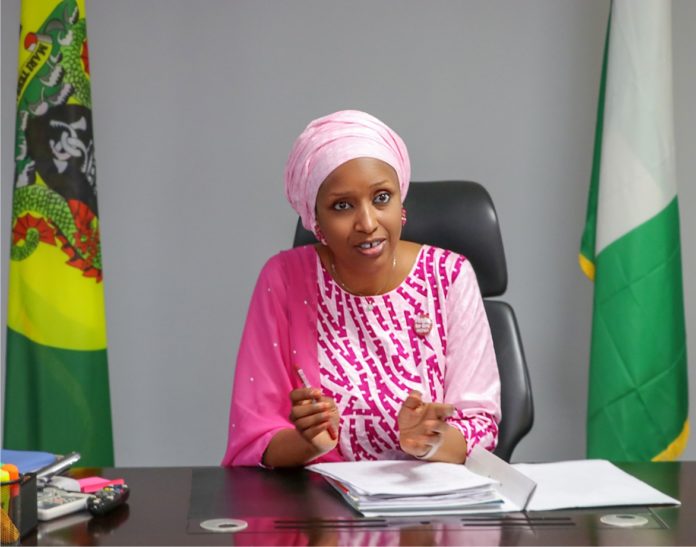Globally, the productivity of ports operation of a country is its main driver of trade and economic activities. In Nigeria, revenues from ports are about the third highest, behind oil and revenues generated by the Federal Inland Revenue Service.
Nevertheless the Nigerian ports are considered unproductive because of the enormous down time in clearing and exporting goods, the ports remain a pivot of our economy.
The Lagos Chamber of Commerce and Industry (LCCI), in a report titled, “Nigeria: Reforming the Maritime Ports,” estimated that over N1 trillion annual losses in Nigerian ports and business community occur due to port inefficiencies.
The LCCI also said that about 71 per cent of the time spent to import and 64 per cent of the times spent to export are linked to delays at the ports, making Nigerian ports uncompetitive to even the neighbouring Ports of Benin, Lagos and Togo.
Some of the known challenges that have made Nigerian ports largely inefficient over the years include infrastructure shortcomings, policy and regulatory inconsistencies, overlapping functions and duplication of roles among ministries, departments and agencies operating at the ports and high incidence of infractions.
Port reforms usually have the general objective of promoting global trade through faster clearance of goods, shorter waiting times for ships awaiting berth, and eliminating redundancies in the functions of the several regulatory, government agencies in the ports, among others.
For Nigerian ports to be efficient, reforms are critical. Already, under the Nigerian Ports Authority (NPA), Managing Director, Mrs Hadiza Bala Usman,, reforms have begun to happen to ensure efficiencies in the ports.
Also, a 24-hour clearing regime has commenced, and the ease of doing business initiatives, backed by executive orders, are already being implemented at the ports.
Recently, Hadiza Bala Usman, said officers were deployed to provide 24-hour services in the ports, in compliance with one of the executive orders. All the agencies of government deployed to the ports are also providing 24-hour operations, she added, saying that this and other reforms are making Nigerian ports more efficient.
She also said that going forward, further concessions to the private sector of certain facilities would take place to further drive efficiency.
Flowing from the reforms, stakeholders have agreed that, to rev up efficiencies in the Nigerian ports, healthy partnerships with the government and the private sector is critical.
In recognition of the importance of efficient ship movements in Nigeria, the NPA has, through its PPP initiatives, executed several successful projects towards this objective. One of those successfully executed initiatives is the Channel management companies. We have the Lagos Channel Management Company (LCM) and the Bonny Channel Company (BCC). The companies handle dredging works in terms of capital and maintenance dredging of the channels into Lagos and Bonny. The Channel Management Companies are Public Partnership (PPP) arrangement between the NPA (60%) and the Channel Management Company, TCMC (40%), through a Joint Venture Agreement.
Interestingly, Hadiza Bala Usman leadership embarked upon the creation and commissioning of the Command & Control, Communication and Intelligence Centre for NPA.
The centre serves as surveillance of all activities and as an information network centre for security agencies in the Port. The surveillance system in the NPA, reaches as far as shipping activities in the Eastern ports of the country, thereby putting both NPA system, the vessel crew and other security agencies on the same page in terms of security of the vessel, crew members and ensuring that importation of dangerous goods and prohibited items are checkmated. Over the years, the Authority was defrauded by unscrupulous importers in connivance with equally unpatriotic NPA officials.
To block the drips, the Usman launched the provisional, final billing and customer portal module of Revenue Invoice management system aimed at improving service offering, partner relationship, create efficient payment method, maximize revenue and eradicate losses associated with fraud and revenue leakage.
Moreover, for the first time in a long while, the acquisition of tug boats, namely, MT Daura, MTUbima, MT Uromi and MT Majiya, to boost the marine operations of the NPA and four newly built water crafts to enhance operational efficiency was commissioned about eight months ago. The acquisition of the tug boats has improved the berthing and sailing of ships that call at the nation’s ports.
The management of the authority under Usman also Established and entrenched a level playing field for all operators in the port industry by removing all bottlenecks that hinder healthy competition in the industry.
An instance is the de-classification of ports terminals which removed the categorization of some ports as strictly oil and gas To ensure transparency and accountability, the Organization became the first MDA to open its budget to the public with the signing of a Memorandum of Understanding with Budgit Open Budget System Platform and Implementation of a Public Data Dissemination programme.
She also introduced a new licensing regime to ensure transparency and due process for its partners and stakeholders. Ahead of the expiration of some of the concession agreements, Ms Usman called for a review of some of these agreements to ensure seamless collaboration for a sustained development of the Maritime industry which led to the development of Standard Operating Practice, SOP.
In view of the growing export market of Nigerians, the Ms Usman led management team, established a dedicated terminal to handle export aimed at diversifying the economy and improving earnings. Some of these dedicated terminals are sited in Ikorodu Lighter Terminal for Lagos, Shoreline Logistics Terminal for Calabar port, Bua Ports and Terminal (warehouse measuring 2.896sqm and Port and Terminal Operators Limited (Warehouse measuring 2.760sqm) for Rivers Port .
It will be recalled that Usman initiated the signing of MoU with Federal Ministry of Works and Housing for the reconstruction of the Port access road. The project cost is put at N4.34 Billion and the NPA contributed the sum of N1.829Billion to the ongoing road project To further create an efficient cargo clearance system, the authority is currently in collaboration with Nigeria Customs Service, NCS, to introduce the much awaited Single Window Platform aimed at simplifying and harmonizing formalities, procedures and the related exchange of information and documents between the various partakers in a supply chain.
Her presence at the NPA has restored investors’ confidence in the port industry notably the China Harbour Engineering Company taking up the balance of NPA,s equity in the lekki deep seaports project.
The Lekki deep seaport initiative has also emboldened the coming of other investors with DP World signing a partnership agreement with Josepdam Port Services just as the Tanger Med of Morocco has also indicated willingness to develop a green field terminal logistic base in Nigeria.
The authority recently carried Realignment exercise of the Authority’s organizational structure with a view to reducing cost and improve efficiency of business processes.
Usman’s introduction of merit driven performance management system to improve employee and organizational productivity, to a large extent, brought about a transformation of the Authority’s manpower development practices which, consequently, improved the skill, knowledge and capacity of employees.
The publication of NPA’s tariff on its website for the whole world to see in line with the vision of transparency and accountability, has made payment of bills easier as all of such payments can now be done online. In an effort to improve ship traffic at the Eastern ports (Delta, Calabar and Port Harcourt), the current management has deployed Tug boats, pilot cutters and initiated dredging works of the channels . The successful berthing of FPSO Egina project is an attestation to the constant infrastructural and operational preparedness of the NPA to serve clients efficiently now and in the foreseeable future. The constant engagement of stakeholders by the management on quarterly basis has resulted in industrial harmony






















